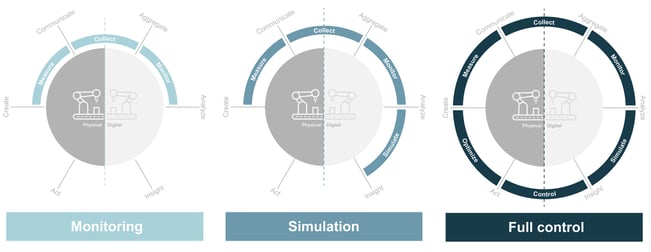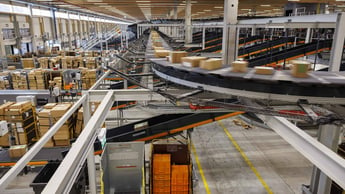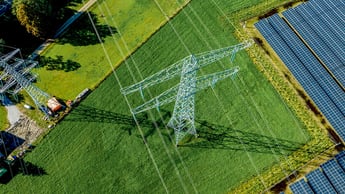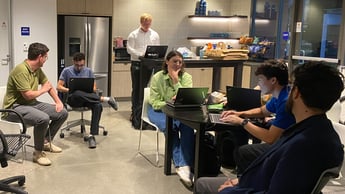Digital Twins are a valuable tool for improving operational efficiency and reducing costs, but it's important to take action and start using them to see these benefits. Sometimes, we can get caught up in the planning and discussion phases without actually taking concrete steps to create and implement Digital Twins.
A Digital Twin is no rocket science. It is a mathematical model that effectively represents certain aspects of a system or systems in the real world. What we need to create a good Digital Twin? "Different disciplines, such as ICT, data science, physics, mathematics, and mechanical engineering. It's important that domain knowledge is thoroughly covered," says Schoondermark.
A good Digital Twin makes it possible to test different scenarios in the virtual environment, in order to make choices for reality quickly and effectively. "Nowadays, this is done using real-time sensor data to keep the Twin up-to-date," says Schoondermark. "In addition, we apply artificial intelligence to constantly learn from the Twin and make it much more accurate in reflecting reality."
Three types
There are different types of Digital Twins, with increasing complexity.
 Based on Parrott and Warshaw, 2017
Based on Parrott and Warshaw, 2017
The basic version provides enhanced monitoring. The Digital Twin runs synchronously with reality and is continuously updated with sensor data. It enriches the raw sensor data, thus giving more insight than only real-time monitoring. "This is often the first step you take with a Digital Twin of a factory production line”, says Schoondermark. “Such a Digital Twin can deliver significant value in ensuring quality and reducing gas consumption. For example, we recently applied this to create a Digital Twin of industrial ovens. With the digital twin, it was possible to reconstruct the energy flow into the product, a metric which can easily be measured with sensors in the oven. By adding these “soft sensors”, we can assist the baker by giving specific recommendations to reduce gas consumption during production.
One step further is AI-assisted decision making. The Digital Twin calculates scenarios so that the user can make informed choices for the future. This can be used to investigate what the effect will be of an inventory in a production line on the capacity and delivery times. The operator can then apply the best scenario to reach his production goals in the most effective manner.
The furthest step is automated optimization and control. In this case, the Digital Twin not only evaluates scenarios, but directly applies them as well.”
Energy management
An example of this is the Digital Twin of electricity consumption in a home with a heat pump, an electric car, and various power-consuming devices. The costs and comfort of the resident are influenced by the control of these devices, plus dynamic electricity prices and weather conditions. Schoondermark says, "A user cannot process all this information to determine the optimal time to charge the car or temporarily turn off the heat pump. With countless variables, one would need to calculate ten thousand scenarios per minute. The Digital Twin can do that. Residents only have to choose whether to prioritize comfort, CO2 reduction, or to reduce costs. The Digital Twin does the rest."







